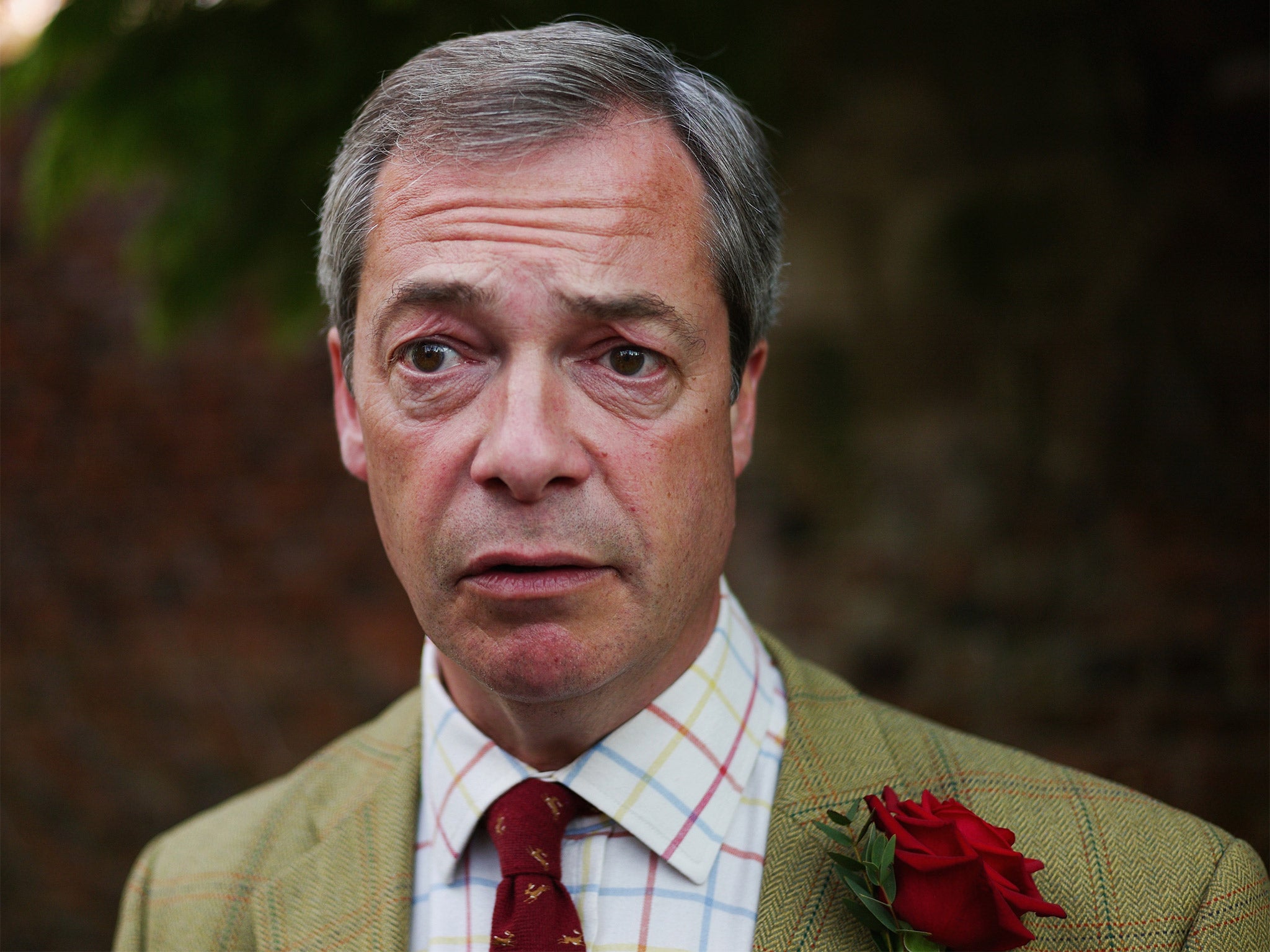Ukip leader Nigel Farage clashes with audience members as he tries to engage with young voters
Mr Farage was rarely off-message during a Leaders Live discussion, but most of his points were met with hostility

Nigel Farage has been grilled by a panel of young people on the European Union, the state of British democracy, immigration and education.
The leader of the UK Independence Party was taking part in a Leaders Live discussion – at points clashing with audience members over personal stories of immigration, his party’s record on homophobia and his stance on climate change.
Rarely straying off-message, Farage used the event - designed to engage people aged 16-24 with the idea of voting in next year’s general election – to tailor his points to a younger audience.
Watch the debate with Nigel Farage here:
Drawing a comparison between Ukip and the SNP, he said: “We are getting people talking about politics again in a way they haven’t for a long time.”
On immigration, Farage adapted a familiar point for his audience.
“If I was a young person living in Poland or Latvia or even in the Eurozone...,” he said. “And I don’t blame anybody to want to come into Britain to want to better their lives, but the effect of this has been to make us the low wage capital of the whole of the European Union.”
The event was the second in the Leaders Live series of discussions between the heads of the five main parties and an audience of young people.
The series, which runs until 16 December, is organised by Bite the Ballot. Hosted by BBC3 presenter Rick Edwards, each discussion is steamed live via Youtube with viewers able to ask questions through social media. Natalie Bennett, leader of the Green Party, was the first leader to take part last week.
At times, the atmosphere felt like an unruly classroom with most of Mr Farage’s points being met with hostility.
On the topic of immigration, one member of the audience drew on his grandmother’s experience of coming to the UK, saying that Ukip was “absolutely dangerous to this country”.
Ukip gaffes and controversies
Show all 18“When my nan came over here, she worked in poor conditions in poor housing, for half the price that white people were paid,” he said, adding: “After the war, we were begging people to come to work in Britain because of the labour shortage and now you’re telling us we should close our borders.”
The event came as new figures showed Ukip membership grew to 40,000 in October – just a few thousand short of the Liberal Democrats.
Speaking to The Independent after the discussion, Mr Farage said: “I think the idea that we’ve got a very large number of young people who aren’t engaging in politics, if we can make it interesting, that must be a good thing.”
He added: “The fact that everybody has agreed to do it is very interesting and surprising.”
Ed Miliband is the next party leader set to take part on 8 December.
Questions for the Ukip leader
With so many unemployed young people, why do we let in so many non-skilled immigrants?
Because we have no choice. We’re signed up to a set of rules. Some of the countries in the EU are very poor. Ever since we opened the door, the argument has been that young people are too lazy and feckless to get out of bed and go to work. What I’ve found going around the country is young people applying for jobs and feeling discriminated against in their own country.
What can we do about businesses leaving the UK?
We are becoming in some ways a less attractive place to do business. We’ve lost manufacturing and we’re losing some non-banking parts of the finance industry. We have to be competitive so people want to invest in this country again.
What would you do about university fees?
There is a chronic shortage of engineers and scientists in this country. Anybody doing engineering or science wouldn't be charged a fee. Overall, if fewer people go to university, that's not a problem: we will have a smaller bill to pay.
Subscribe to Independent Premium to bookmark this article
Want to bookmark your favourite articles and stories to read or reference later? Start your Independent Premium subscription today.

Join our commenting forum
Join thought-provoking conversations, follow other Independent readers and see their replies